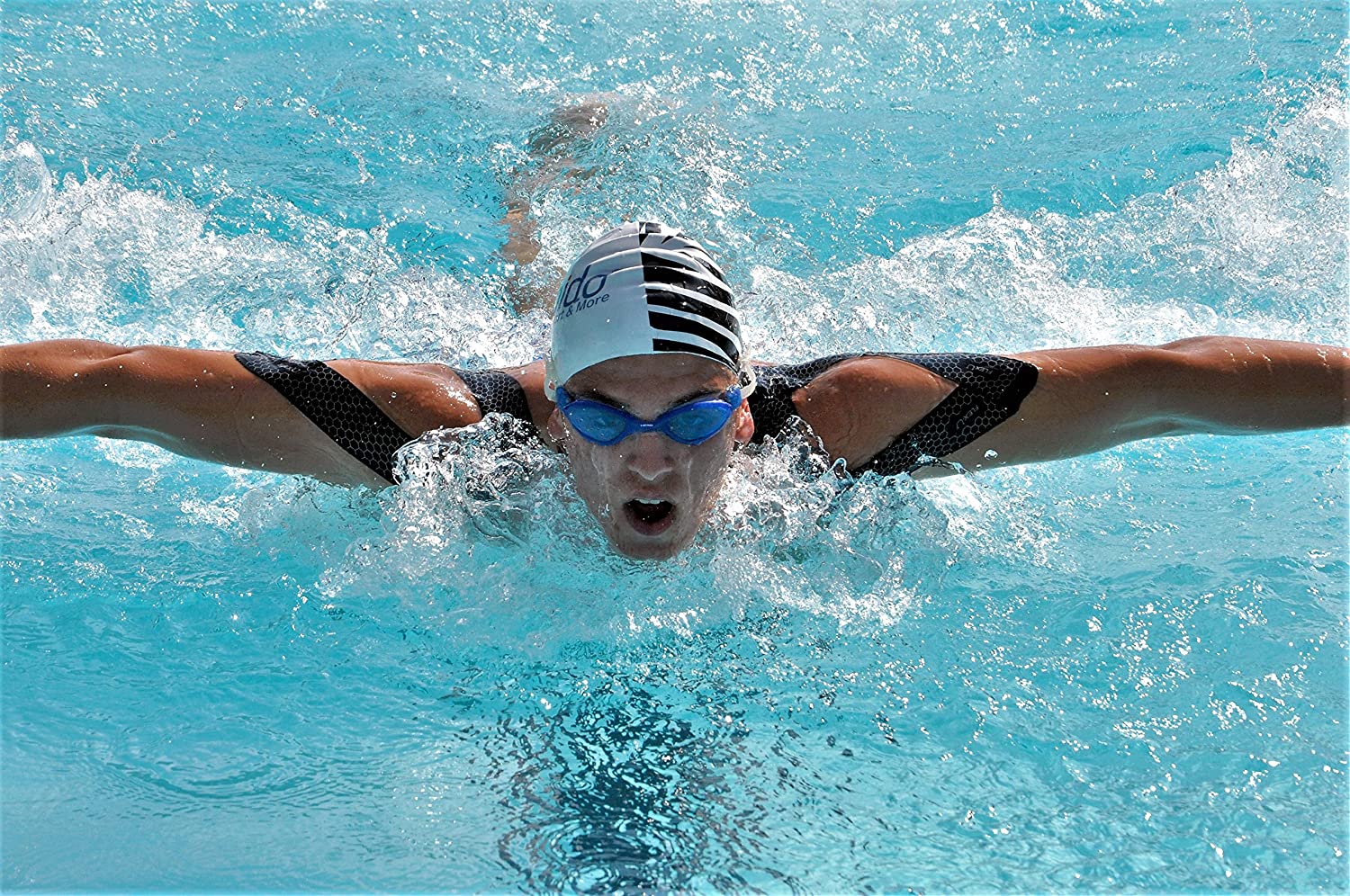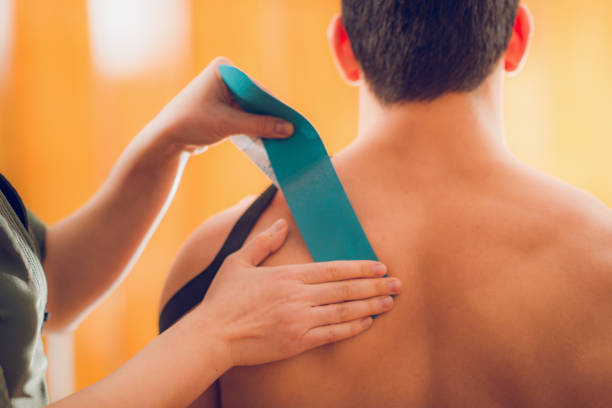
Athletic tape worn over the thumb and other hand parts is undoubtedly famous among fitness enthusiasts today - especially lifters. Its flexibility, adaptability, simple designs, and ease of use has put these tapes in high demand.
While they may be easy to use, you must be particular about how you wear them.
If you wear them without intention, they might not prove effective. Dig in to discuss some methods of wearing thumb tapes correctly, precautions, and some defining features you should look out for during purchase.
How Do These Tapes Work?
What are some reasons why professionals and fitness enthusiasts are so particular about using these tapes? What are the benefits they offer? How do they work?
They Protect The Thumb From Damage
When people dabble in strength-building exercises, they soon realize that constant lifting takes quite a toll on their hands and fingers. This is even more pronounced when they consistently perform lifting techniques such as the hooked grip for short, quick lifts.
The ideal thumb tape - like ours at Hampton Adams - prevents this from happening. By acting as a protective "skin," they take the possible damage in place of the skin without any inconvenience. Our 8-pack 0.3-inch tapes are built and durable to withstand stress while being lightweight and breathable enough for comfort. With just the right amount of elasticity, these features culminate in the best user experience for you!
They Reinforce Grip
This is a big deal because accidents result from poor grips during lifting. Often, the poor grip is due to fatigue, poorly executed technique, or sweaty palms. These tapes help reduce the chances of these accidents.
Not only do they lock your thumb and middle finger in place during lifting when adequately worn, but they are also sweat-proof and can hold their own against moisture too!
How Do You Wear These Tapes?
Some people wind them down, while others do it up and down. Also, some use precut strips, while others wrap the fingers right off the roll, cutting it off only when they are done.
No matter the variation, when properly done, the end is the same - a secure, firm grip that does not impede mobility and is very effective. You only need some tape and some time - say, two minutes - to spare.
First, clean your hands properly before you wear these tapes. This is to ensure no debris gets in the way of a proper attachment. Wash your hands with soap and water, and allow them to dry properly afterward before you proceed to the next step.
Method 1 - Thumb Taping
A proper anchor sets the stage for effective thumb taping. Roll out a portion of the tape and anchor its tip just over the back of your thumbnail. Rub it down with your finger(s). This ensures that the adhesive of the tape blends properly with your skin. For good measure, you could wind your tape twice around this level.
After you have wound the first bit right over the back of the thumbnail, wind down the thumb, spacing each wind by half the tape's width, you should slightly bend your thumb as you wind the tape down. This ensures the mobility of your finger is not unduly restricted. A restricted thumb will get in the way of effective lifting and increase the risk of injury.
As soon as you wind down to the base of the thumb, double up on the tape at the very bottom for good measure. This anchors the tape firmly and prevents it from slipping under the vigor of exercises.
As an extra feature, you could also wrap the tape around your forefinger or middle finger, depending on which one you primarily use with your thumb for hook lifts. This way, the taped fingers come to hold together, further reinforcing your grip.
Method 2 - Thumb Taping
Unlike the method above, this requires a bit of intricacy.
Roll out a sizeable strip of tape. If it's quite thick (or wide), tear it into two down the middle. Each thumb would need about three apiece for this method. This means that you have to cut three strips and tear each down the middle to pull this off if your tapes are wide.
Attach The First Tape:
Take a piece of tape and anchor it to the palmar surface of your thumb's base. Then, place your thumb horizontally and let the tape hang down between the two joints of your thumb. Wind the tape around this area and work it slightly toward the knuckle. Ensure it is firm and in place but not too tight.
Attach The Second:
Take another strip and anchor it just at the level of your thumbnail. Position your finger horizontally and let the tape hang down. Then, wrap it towards the knuckle and the base of the thumb. Let it go slightly past it. All the while, ensure your finger is slightly bent, so you do not restrict mobility.
Round Off With The Third Strip:
Ordinarily, the two you have done so far could suffice for lifting. However, for good measure, add a third. Anchor it firmly to the inner surface of your thumb, just below the level of your nail bed. Wind it firmly around your thumb at that level, just in-between the two tapes. This should be relatively tighter than the previous two but not too tight that it impedes circulation.
Method 3: Protecting Other Fingers - Especially If You Have Sustained Tears.
- Tear off a strip of tape that is fairly long enough. Ideally, about 5-6 inches would suffice. Fold into half, lengthwise. Wrap it around the base of your finger (apart from your thumb) so the tape loops around it, covering the base in the process. Repeat this for as many fingers as you want.
- Take the second piece of tape, whose length approximately doubles that of the first. Tape the wrapped portion to one end of the tape, then fold the tape width-wise so that the wrapped portion is covered by the other end as well. You might need more than one of these, depending on the number of wrapped fingers.
- This second tape should extend down to the wrist. Here, you have to hold it down firmly with a few rolls of this tape around your wrist.
There you have it!
What to Avoid While Wrapping Your Fingers For Lifting
The two major risks of wrapping your fingers are that you could cut off circulation or impair mobility if you wrap them on too tightly.
Cut-off circulation could lead to serious injury, pressure sores, or infections if left on for long periods.
Another is that you should avoid "numbing" your fingers by weaving too many rolls around them. It could rid your fingers of the sensory experience of your exercises - one of the things that make exercises worthwhile.
What to Look Out For When Purchasing Tapes For Lifting
Quality of Material: The best tapes are made from durable, elastic, breathable, and lightweight fabric - usually reinforced cotton or cotton-spandex blends. All these properties culminate in the ultimate user satisfaction during use. Whatever tape you seek to buy, make sure it ticks all these boxes.
Adhesive Property: A tape's quality is also defined by its adhesiveness. Does the tape hold firm? How long does it last? Does it leave residue after use? Does your skin react to it? The ideal tape stays on for long periods without losing effectiveness. It also does not leave unsightly residue after use, nor is it allergenic.
Versatility: Does the tape do more than work for thumbs? Do they have other applications? These are some other questions you should seek answers to before purchasing, especially if you are into many sports endeavors.
Versatile tapes help you cut down on expenses from multiple purchases. An example is our Hampton Adams thumb tape which also works for grappling, MMA, BJJ, climbing, and more.
Value/Cost Congruency: Ensure you opt for tapes that offer value worthy of their costs. Also, do not settle for "sub-par" products!
Aesthetic Appeal: If you fancy a touch of color and creativity, nothing stops you from having an eye out for aesthetic appeal. It is often a secondary feature for many, though. Nonetheless, it is still worth considering. Tapes come in different designs and colors, and you'll find one that appeals to you.
Consumer Protection: The ideal thumb tape products create consumer protection-oriented provisions to instill faith in their brand in the minds of potential consumers. For example, a refund could be within a time window if the tapes do not meet expectations.
Visit Hampton Adams Today!
We offer some of the best thumb tapes on the market - with all the properties that culminate in the ideal tape. Also, as a gesture of buyer protection and to bolster your trust in our brand, we offer refunds to customers who have genuine reservations about our products after purchase.
If you'd like to get one of the affordable yet high-quality tapes, make an order on the Hampton Adams website today!



